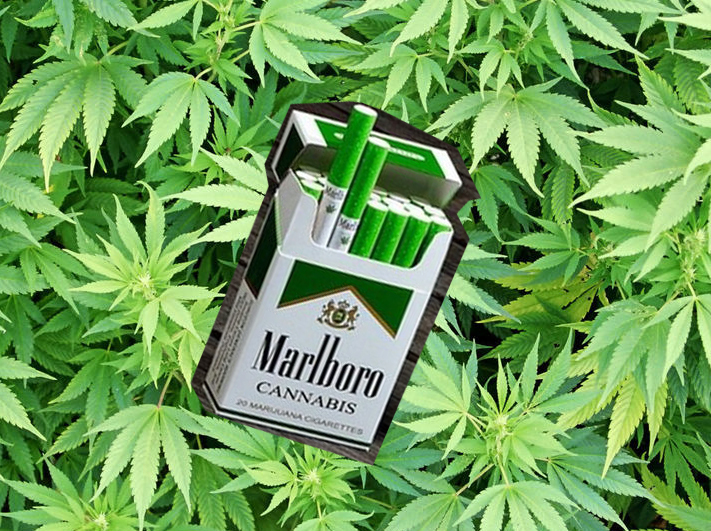One of the predominant ways businesses protect their brands is through Federal trademark registration at the United States Patent and Trademark Office (USPTO). In order to federally register a trademark, the trademark must be used in interstate commerce—lawfully. Because marijuana is federally illegal, it is impossible for a marijuana business to lawfully use a trademark in connection with marijuana and/or marijuana-specific goods and services in interstate commerce. Since Federal trademark registration is not an option, marijuana businesses need to get creative in how they protect their brands. Here are some alternative options for how a marijuana business can protect its brands.
Obtaining Federal Registration for Analogous Goods and Services
One tactic marijuana businesses have used to try and protect their brands is to obtain federal trademark registration for goods and services analogous to marijuana goods and services. These businesses might apply for trademark registration in connection with goods and services like tobacco, smoking devices, rolling papers, vaporizers, clothing, hats, and retail tobacco stores or services. The idea behind this tactic is rooted in trademark law which recognizes that similar marks used on related goods/services can cause consumer confusion as to the origin of those goods/services. By obtaining a federal registration for related goods and services, these businesses believe that they will be able to prevent third parties from using or obtaining registrations for confusingly similar trademarks in connection with marijuana goods and services if and when marijuana is legalized. They’re taking a gamble that their rights to, for example, a tobacco-related trademark will keep others from using that name in connection with marijuana.
The logic is, at least in theory, sound, and we see this type of thing quite often with alcohol beverage trademarks. The USPTO routinely refuses trademark applications for beer that are similar to existing registrations for wine or spirits. Alcohol beverage trademarks are also commonly refused in light of similar prior registrations for restaurants and bars, or even glassware.
There are, of course, some caveats with this approach. First, to apply for a trademark for analogous goods/services, you must have a bona fide intent to use the trademark in connection with those analogous goods/services, and/or (ultimately) actually use the trademark in connection with those analogous goods/services in order for the trademark to register. Someone who is merely trying to reserve a right in a name for marijuana is likely vulnerable to opposition or cancellation. Second, we don’t know whether (or the degree to which) the USPTO or courts will treat tobacco and tobacco-related goods/services and marijuana and marijuana-related goods/services as related goods. We can predict that these bodies will treat them as related goods, but this has not yet been tested. Finally, there are other factors at play, too, such as the difference in the trade channels in which tobacco and marijuana do (or will) travel, and possibly differences in consumer sophistication.
Due to this uncertainty, marijuana businesses should consider additional tactics to protect their brands.
Relying on Common Law Rights
Are you currently (and lawfully) selling marijuana under a brand name in a state in which marijuana has been legalized? If so, chances are you already have some “common law” trademark rights to that brand name. Common law trademark rights require no registration–they arise out of, and rely on continued and substantially exclusive use of, a trademark in connection with the sale of goods or services. These rights are limited to the goods/services in connection with which the trademark is used, and the geographic areas in which the mark is used (including the areas of “reasonable expansion”). So long as you maintain these common law rights by continuing to use your trademark, you can enforce these rights against junior users of confusingly similar marks on confusingly similar goods/services within your geographic area. If you have a mark you are selling products under, you should put third parties on notice of your claim to a the mark by placing the letters TM (e.g. HANGRY BUDS™) next to the mark everywhere you use it (on packaging, advertising, etc.). Also, you should take care to use your mark in a consistent manner (same spelling, same capitalization, etc.) to strengthen your claim to the mark.
Relying on common-law trademark rights can be a good fallback solution for preventing third parties in your geographic area from using confusingly similar marijuana trademarks. But, common-law rights have limitations, and require excellent recordkeeping and proof to substantiate a claim to a mark, as of a certain date.
Obtaining State Trademark Registration
As illustrated above, common-law rights provide some fallback rights to a mark, but are somewhat limited. A much better solution is to seek a state trademark registration. Generally speaking, a state trademark registration provides you with the exclusive right to use a mark in connection with the described goods as of the date of filing. Each state has their own requirements for registration, but in general, they can be obtained by applying, paying a fee, and showing use of a trademark in connection with certain goods in the particular state. Here is a list of states where marijuana trademark registration is possible, as of late 2017 (the list is growing):
- Alaska
- Arizona
- Arkansas
- California (January 1, 2018)
- Colorado
- Florida
- Hawaii
- Indiana
- Louisiana
- Maine
- Maryland
- Michigan
- Montana
- Nevada
- New York
- North Dakota
- Oregon
- Vermont
- Washington
As mentioned above, state trademark registrations entitle the registrant to the exclusive right to use the trademark within the entire state, and are prima facie evidence of the validity of the registration and the registrant’s ownership of the registration. Extending the example from above, a state trademark registrant based in San Francisco could rely on her state trademark registration to go after a junior user of a confusingly similar trademark in Los Angeles (or anywhere else that may be outside the registrant’s geographic area).
Conclusion
Just like other businesses, Marijuana businesses should prioritize protecting their brands, but due to various restrictions, must get creative in doing so. While federal trademark registration for marijuana and marijuana-specific goods/services is unavailable currently, obtaining federal registration for analogous goods may allow you to prevent others from using or registering the trademark in connection with marijuana. Relying on common law rights alone provides limited rights but might cause headaches down the road if you plan to expand beyond your initial territory, or if you have a difficult time substantiating your rights to an early sale date. Obtaining a state trademark registration is likely the best bet for most Marijuana businesses, at least until federal law changes and federal registration becomes a possibility.




Leave a Reply